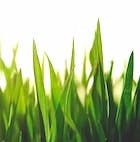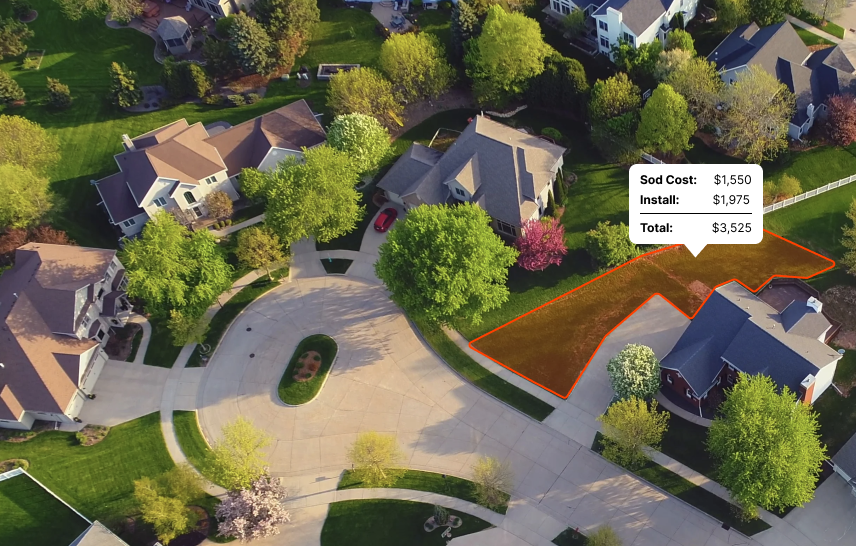Considering the climate and seasonal variations in Northern California is crucial for successful grass growing. Choosing grass types that thrive under these conditions and planting them at the right times of the year will help ensure a lush and vibrant lawn.”
Introduction
Northern California boasts a Mediterranean climate with hot, dry summers and cold, wet winters, which presents unique considerations for grass growth. The key is to select grasses that are sturdy enough to withstand the high heat of summer and the chill of winter, while also being able to tolerate dry and wet periods.
The optimal time to lay grass in Northern California is in the spring and fall seasons. These periods provide a milder climate that is conducive to the establishment of strong grass roots, before the extremities of the summer heat or winter cold set in.
In terms of grass zones, Northern California generally falls within zones 7-10. These zones indicate the range of temperatures the region experiences throughout the year and are useful for determining the hardiness of grasses that are suitable for the area.
The higher the zone number, the warmer the winter temperatures are. However, remember that local variations in microclimates can affect grass growth, so always consider the specific conditions of your location.
What are the best sod types for CA?
In the world of landscaping, not all grasses are created equal. Each thrives in a specific climate zone: cool, warm, or transition.
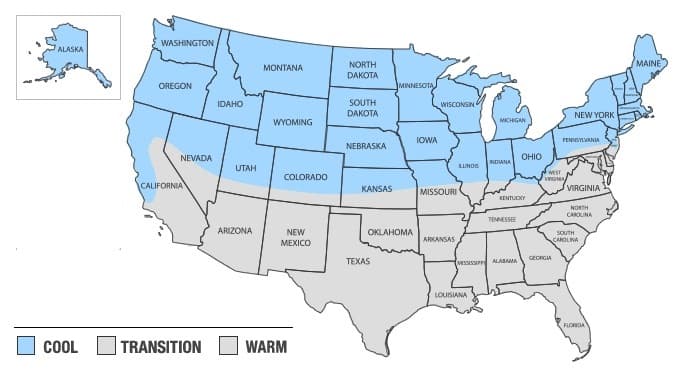
Northern California, with its cool season climate, prefers a particular set of grasses that relish the lower temperatures. The following sods are the easiest to grow and maintain in Northern California:
While it's possible to grow grasses meant for other regions with proper care, attention and timing, these are the most common grasses in Northern California for residential lawns.
Level Up Your Lawn Skills
Once per week we'll send you an interview from someone who has mastered the art of lawn care.
Recommended species for shade
Frustrated with patchy, sun-starved lawns? We've got the solution — shade-loving grass varieties.
The top dog? Tall Fescue. Native to Europe, this hardy fellow is tough as nails. Can handle almost any soil type, stays green longer, and isn't a water hog. Plus, this character can manage with a meager 4-6 hours of sunlight. Tall Fescue's motto might as well be 'the less sun, the better'.
Next up is St. Augustine. Got shade? No problem! A Southern California import, St. Augustine's a beach bum at heart. It loves its moisture, all right. Requires around 5 hours of sun time and roll out the welcome mat for thicker, coarser turf. Be prepared to handle extra mowing and maintenance.
Now, let's give it up for the underdog — fine fescue. The cousin to Tall Fescue, it loves cool conditions. Doesn't need much sunlight. 4-5 hours will do. It's like the vampire of the grass realm, just without the fangs and the broody demeanour.
But wait, there's more. We've got Ryegrass. This one's is a neat freak — enjoys well-drained, fertile soil. Can thrive in around 6-8 hours of sunlight, making it a valued guest in moderately shady lawns.
Our final contender is Kentucky Bluegrass. Don't be fooled by the name. It’s as green as they come, this one. Can handle moderate shade, needing around 6 hours of sunlight. Known for its striking green hue, dense texture, and high durability, this grass variety can turn any lackluster lawn into a vibrant garden party.
Remember, folks. Every lawn has its own personality - some sun-soaked, some overshadowed. Pick the grass variety that fits yours. Keep the climate, soil type, water availability in mind. Just like the perfect pair of jeans, there's an ideal grass for every Northern California lawn. Go find that match!
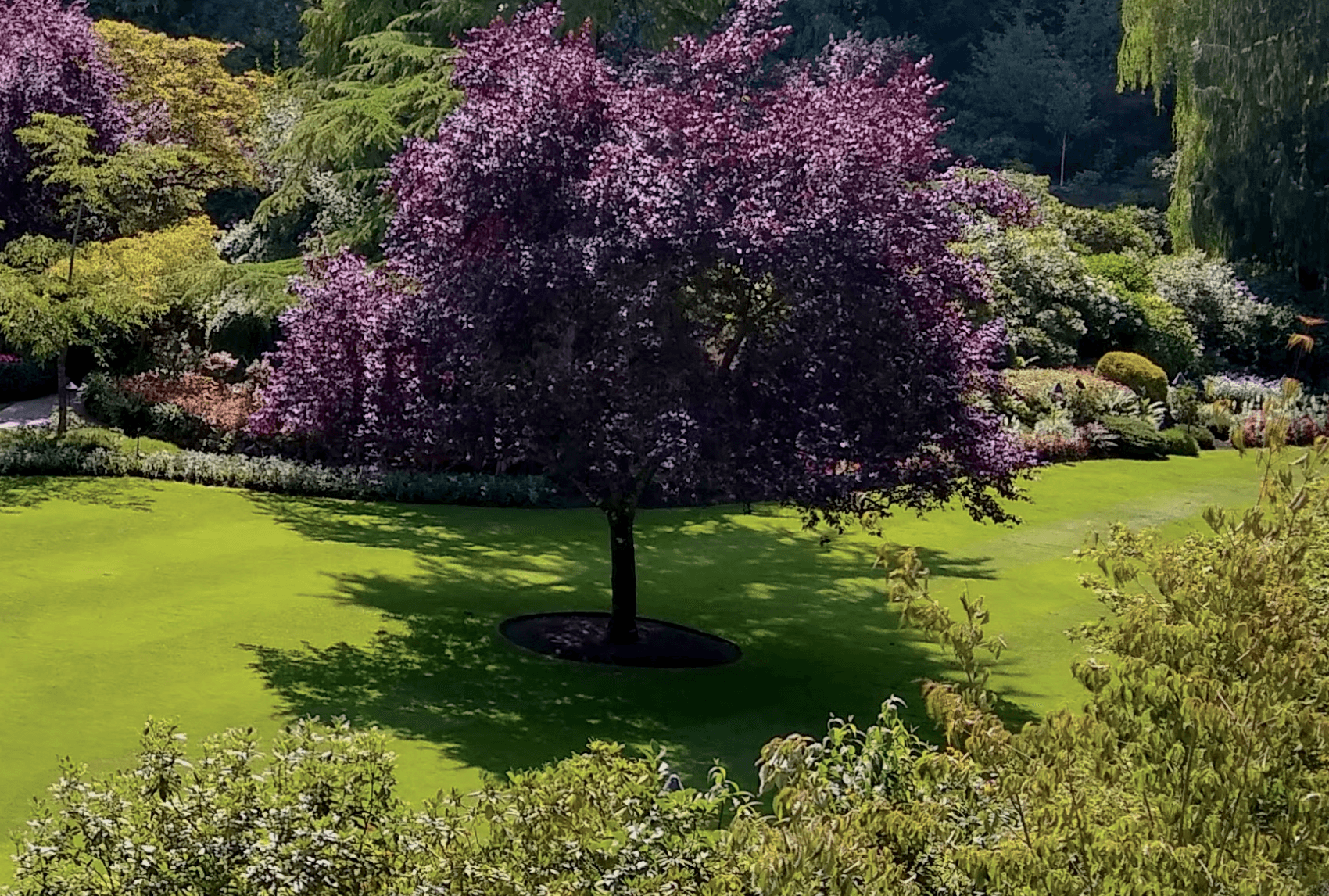
Recommended for full sun or partial sun
Choosing the right sod for your lawn depends heavily on the sunlight exposure in your yard. Different grass types have varying light requirements for optimal growth and appearance. Assessing whether your lawn receives full or partial sun is essential in selecting sod that will flourish and stay healthy in your specific environment.
Below are some sod options recommended for either full sun or partial sun conditions in CA:
| Grass Type | Sun | Good to Know |
|---|---|---|
| Tall Fescue | Partial | Tall Fescue is adaptable to a range of conditions, including partial sun, and is known for its deep root system and tolerance to drought. |
| Kentucky Bluegrass | Full | Kentucky Bluegrass prefers full sun and is prized for its fine texture, rich color, and ability to recover quickly from damage. |
| Perennial Ryegrass | Full | Perennial Ryegrass thrives in full sun and is known for its rapid germination, fine texture, and bright green color. |
| Fine Fescue | Partial | Fine Fescue is well-suited for partial sun and is appreciated for its fine texture, shade tolerance, and low maintenance requirements. |
What varieties stay green year-round?
As with anything agriculture related, there is some nuance to this question. There are many grasses that can stay green year round in but it depends heavily on your location within Northern California as well as any microclimates that may exist.
The following grasses have the ability to stay green year round in Northern California:
| Grass Type | Caveats |
|---|---|
| Tall Fescue | It typically stays green throughout the year in milder climates, given that it isn't overly stressed by heat or drought in the summer. |
| Kentucky Bluegrass | It can retain its green color for much of the year when well-maintained, though harsh winter temperatures can push it towards dormancy and a browner hue. |
| Perennial Ryegrass | It can stay vibrant and green throughout the year in many climates, unless conditions are extremely cold or dry. |
| Fine Fescue | It keeps its green color throughout the year in ideal conditions. If the winters are particularly harsh, it may lose some color. |
What is the best time to lay sod in Northern California?
Since it is considered a cool-season location, the ideal time to lay sod is in early spring or early fall. These periods offer moderate temperatures, leading to less stress on the sod and providing optimal conditions for root establishment before extreme temperatures of winter or summer. Avoid the summer, as high heat can stress the sod.
As you can see in the image below, you'll notice the most shoot growth (the grass above ground) and root growth in the spring and fall for cool season grases:
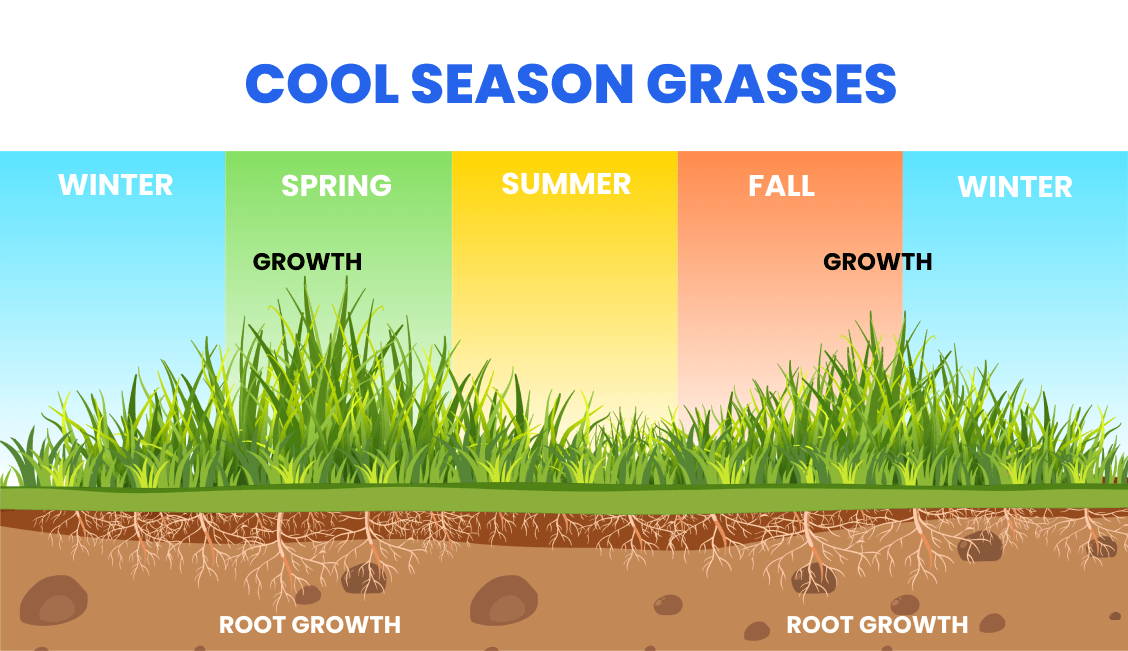
Find reputable companies for installing sod in CA
Here are the top problems you'll face when trying to get sod installed by a landscaping company:
- They're not transparent about pricing. You'll often get a quote that's way higher than you'd expect.
- They're hard to get ahold of on the phone or you'll reach out online but won't hear back.
- It's hard to pin them down for a specific date. Because you can only bring sod from the farm when there's decent weather, this causes some delays at times. It also has a short shelf life, so it's important to get it installed within a day or two of delivery.
We've done all the work for you. Click below to get a quote from one of the top installers in Northern California.
